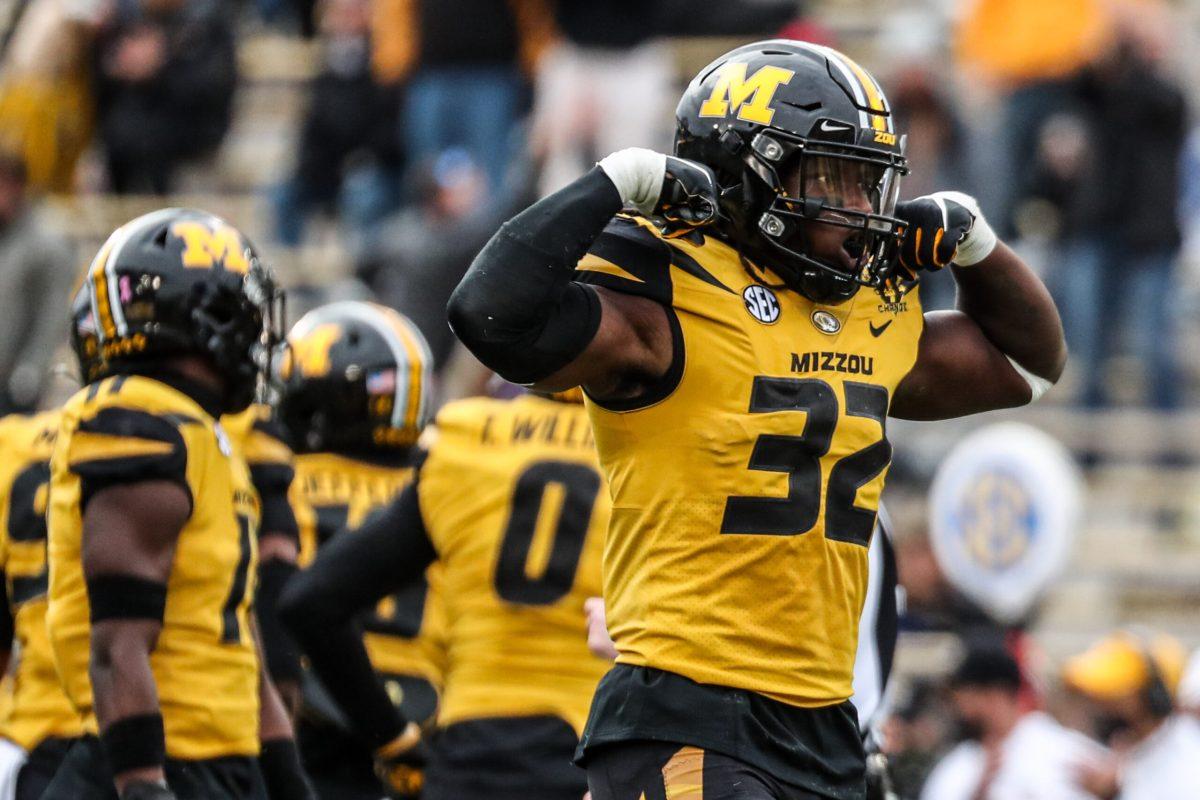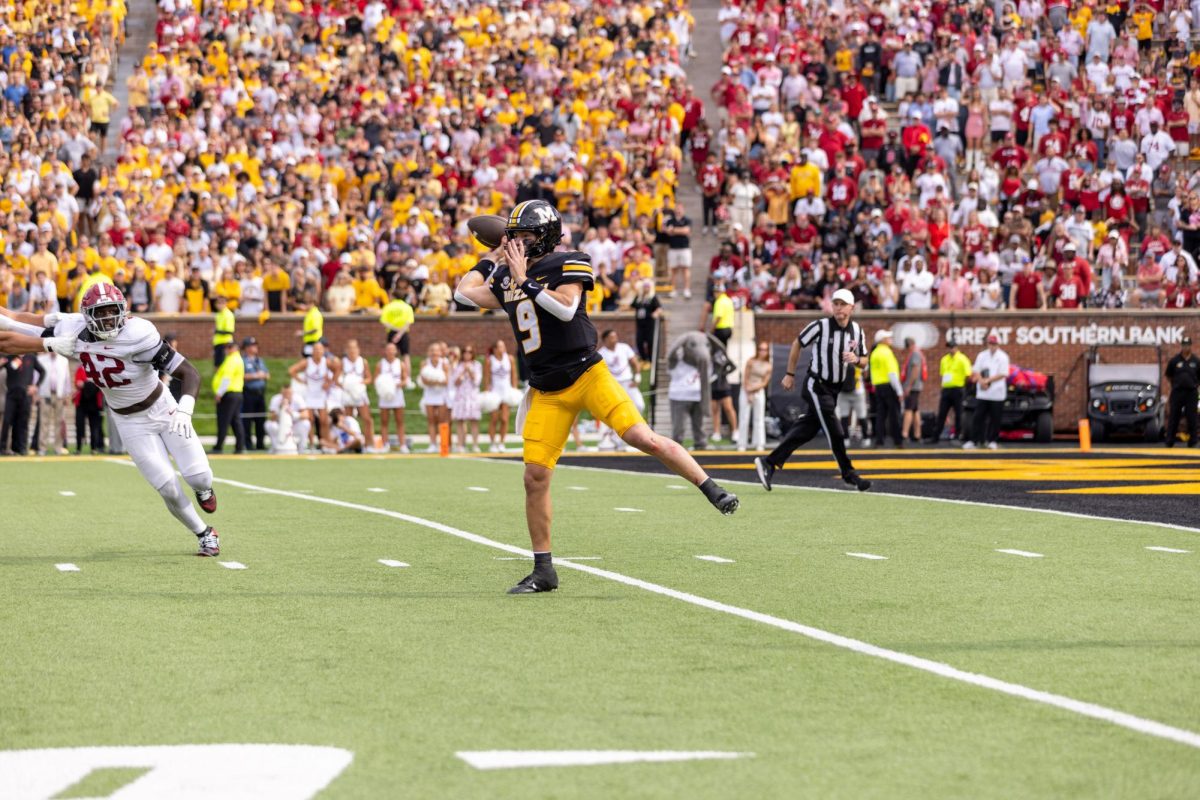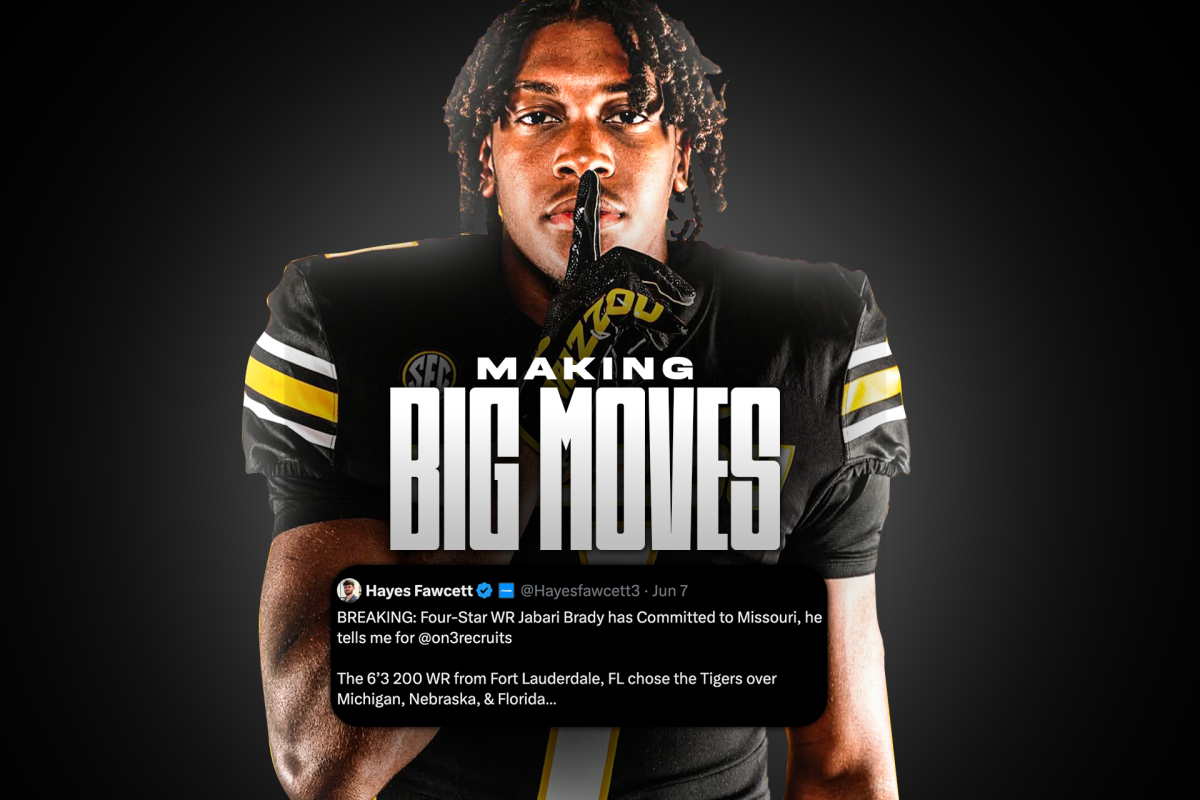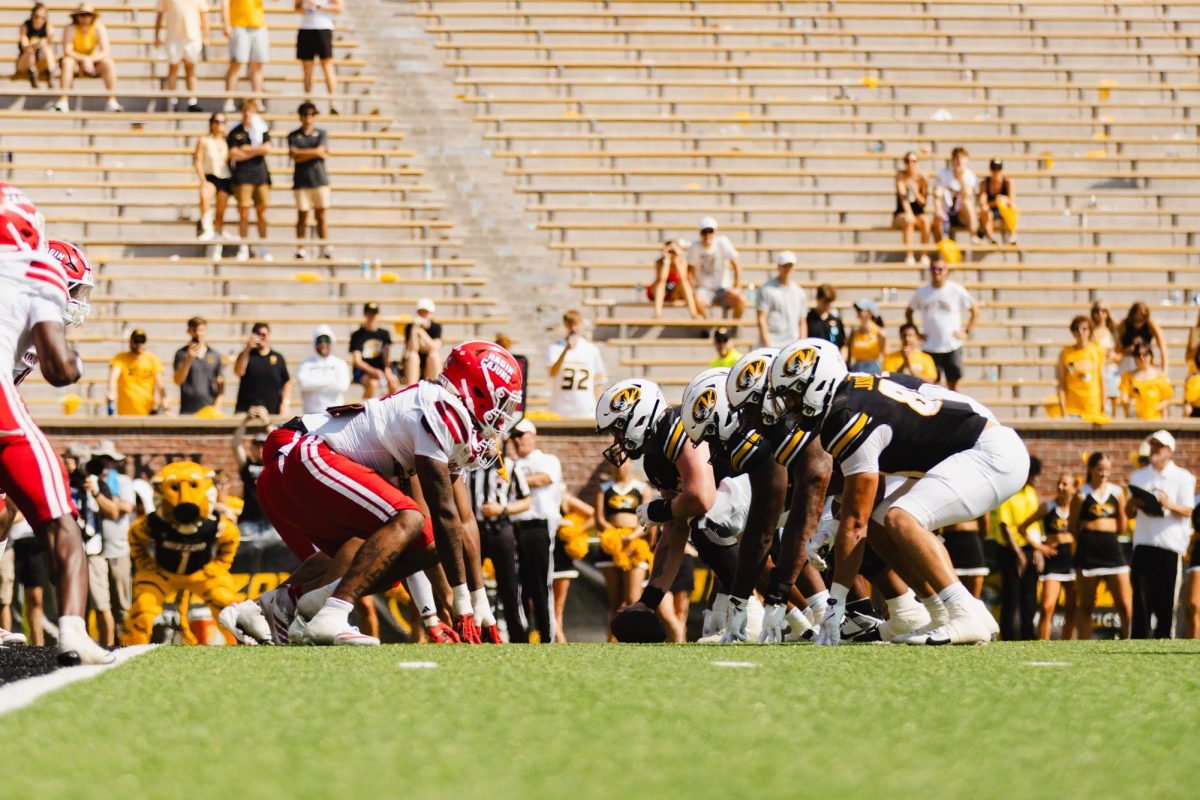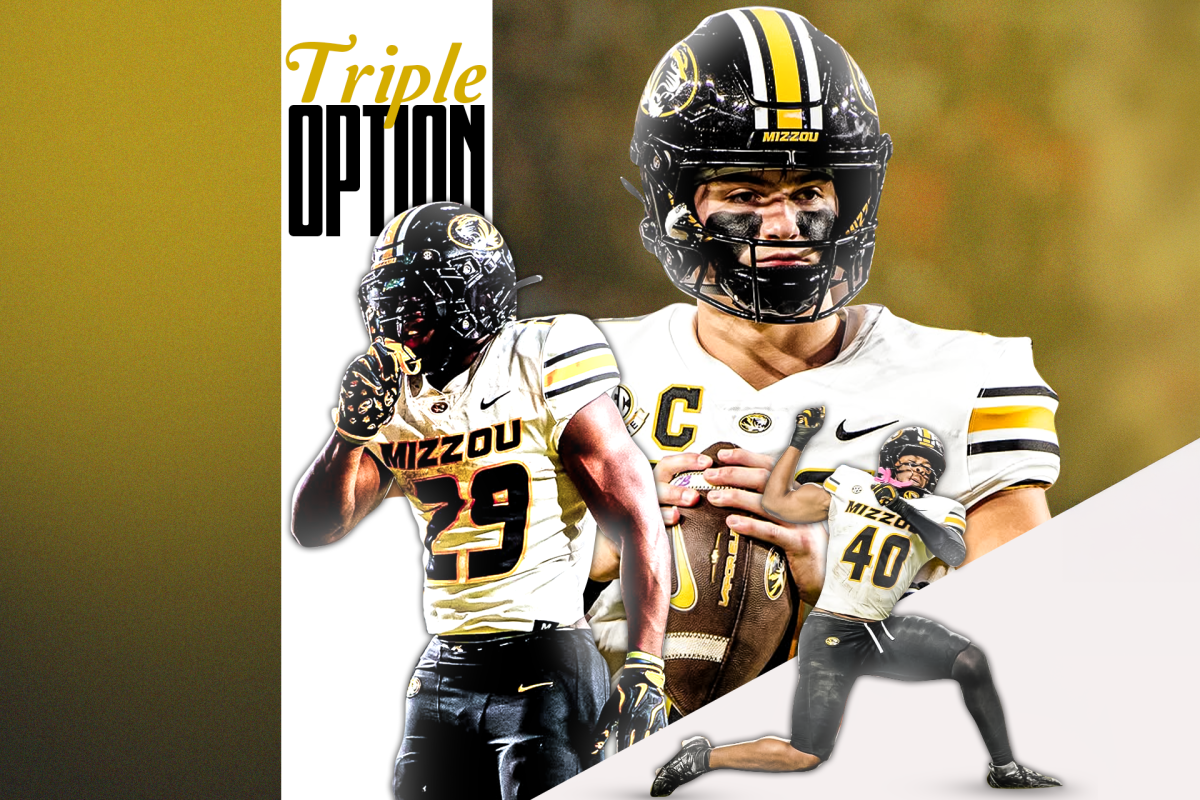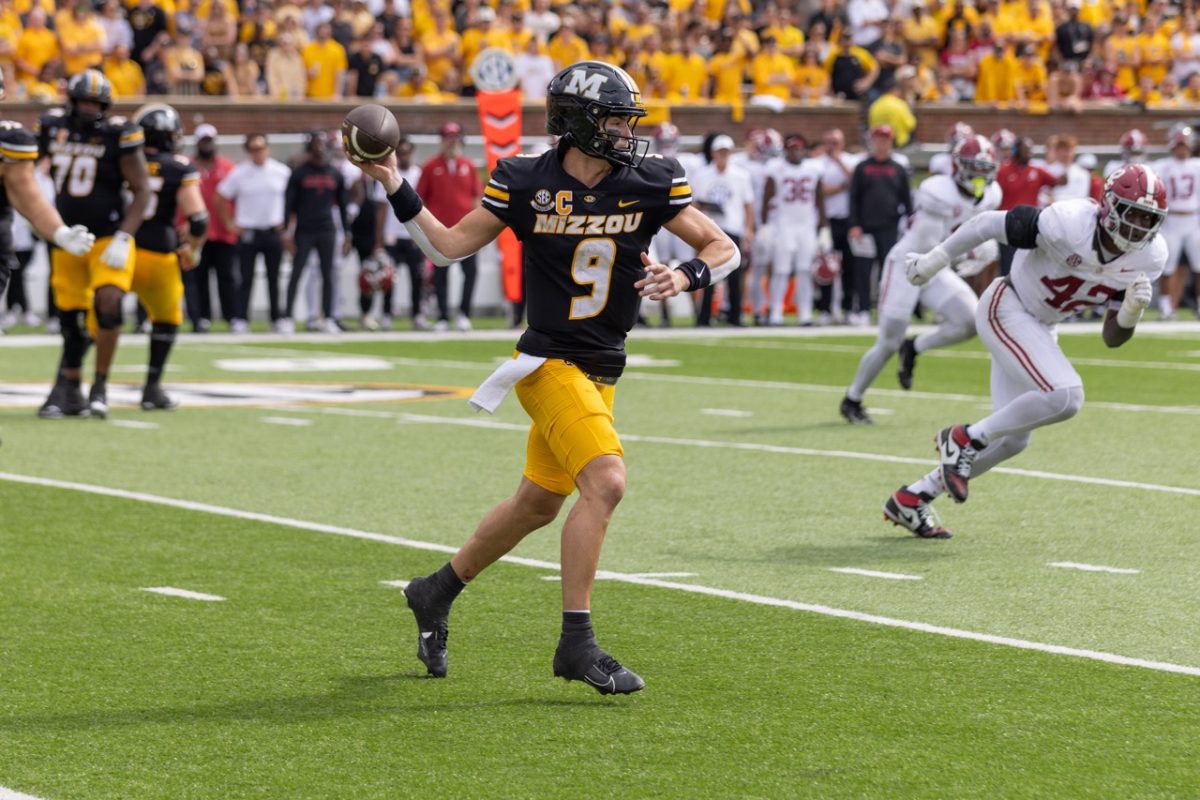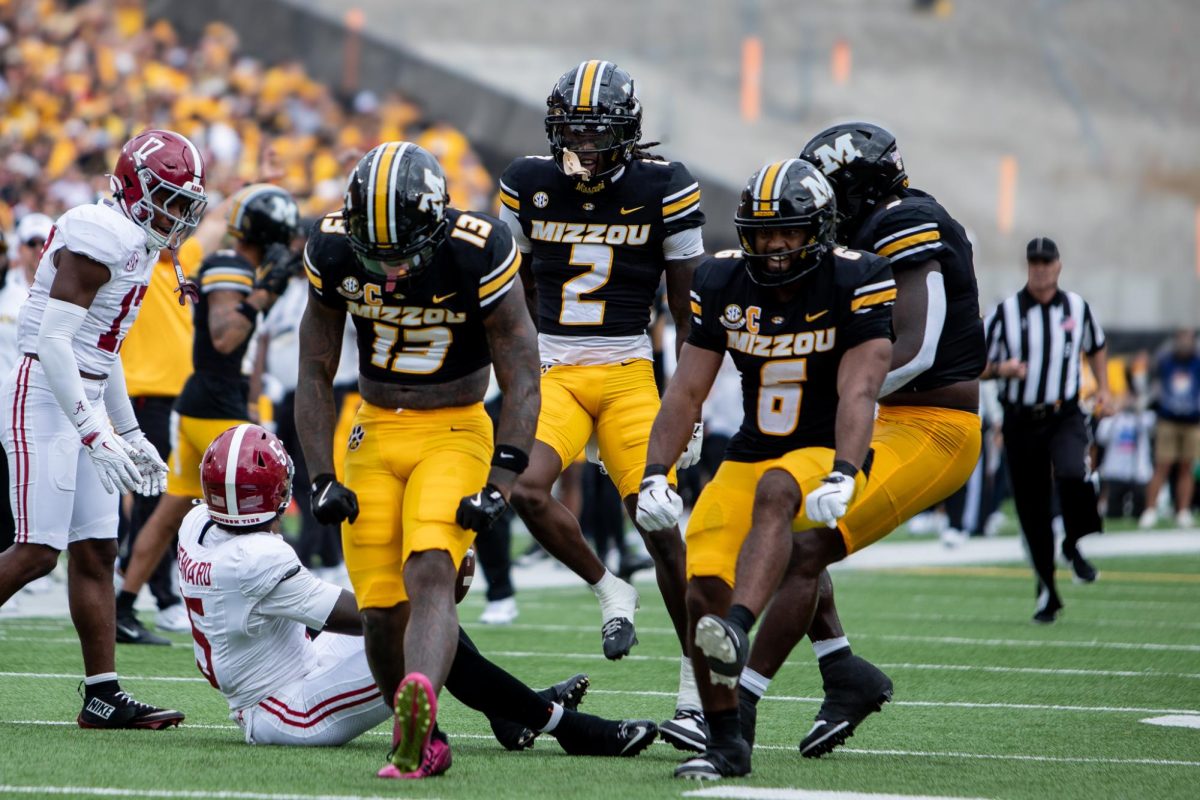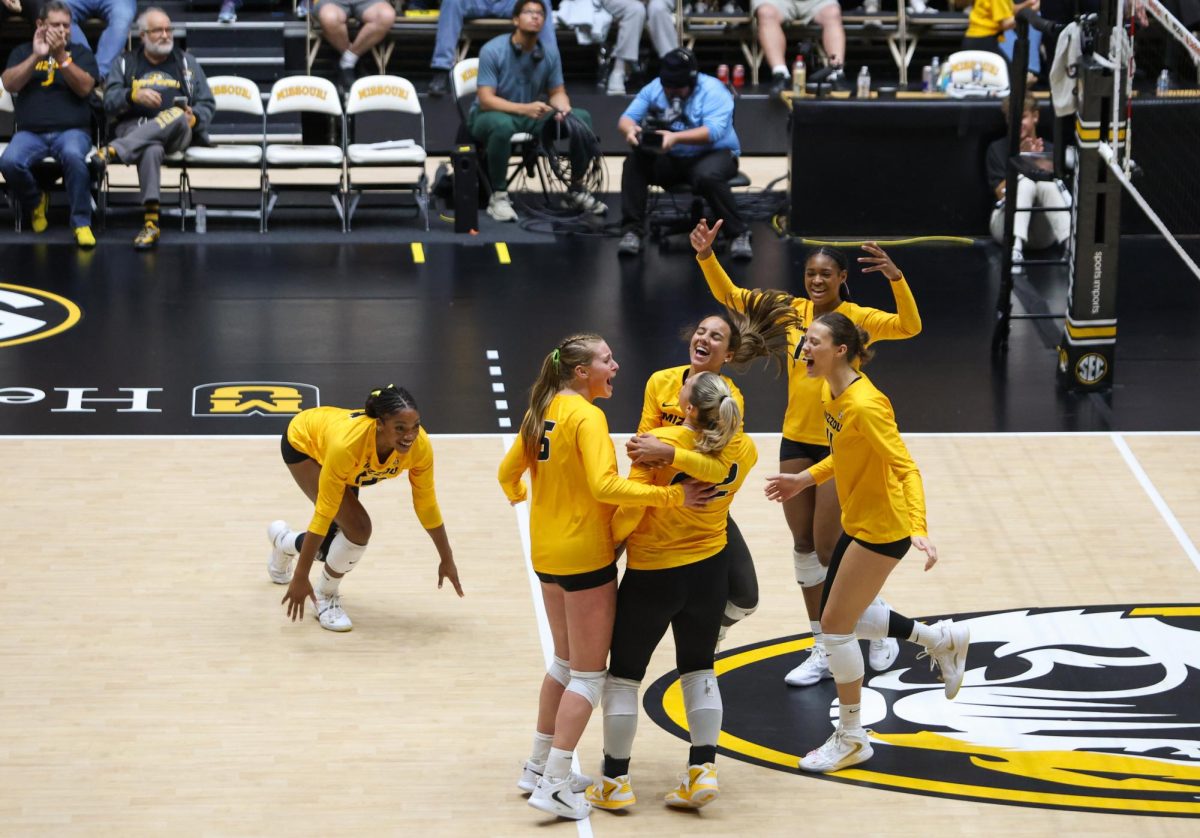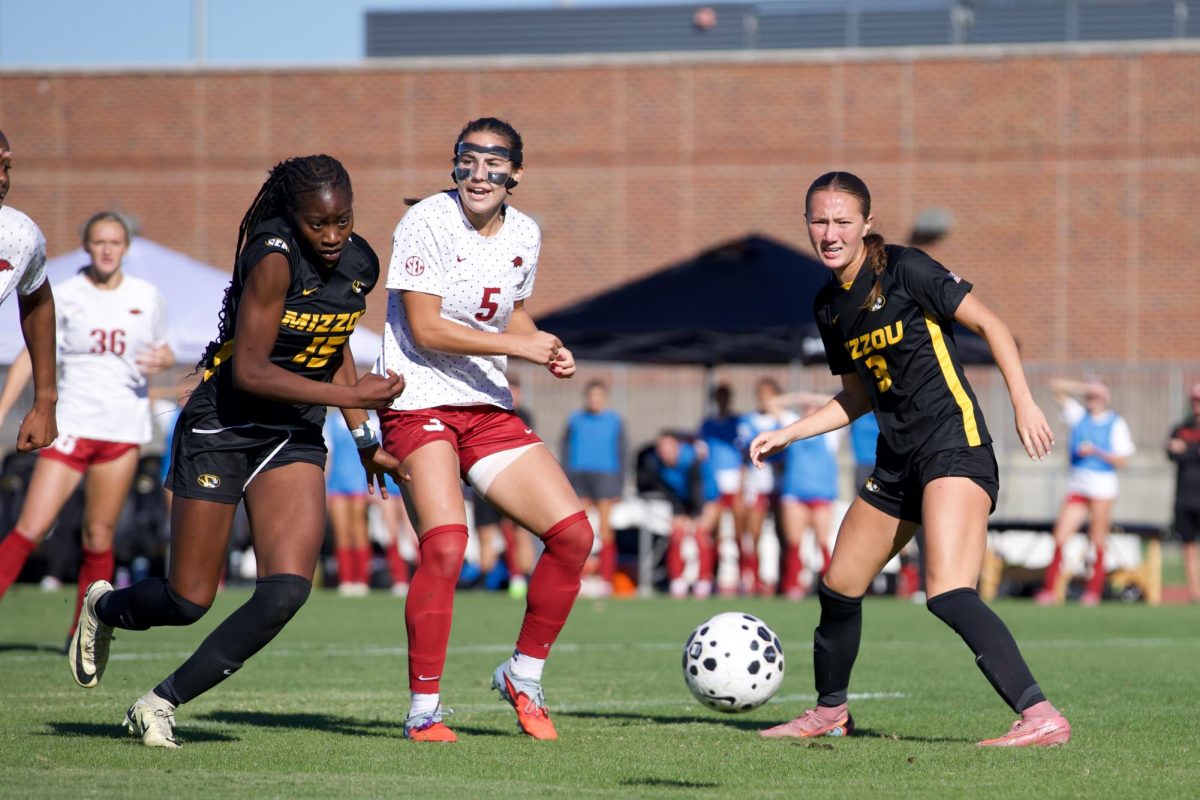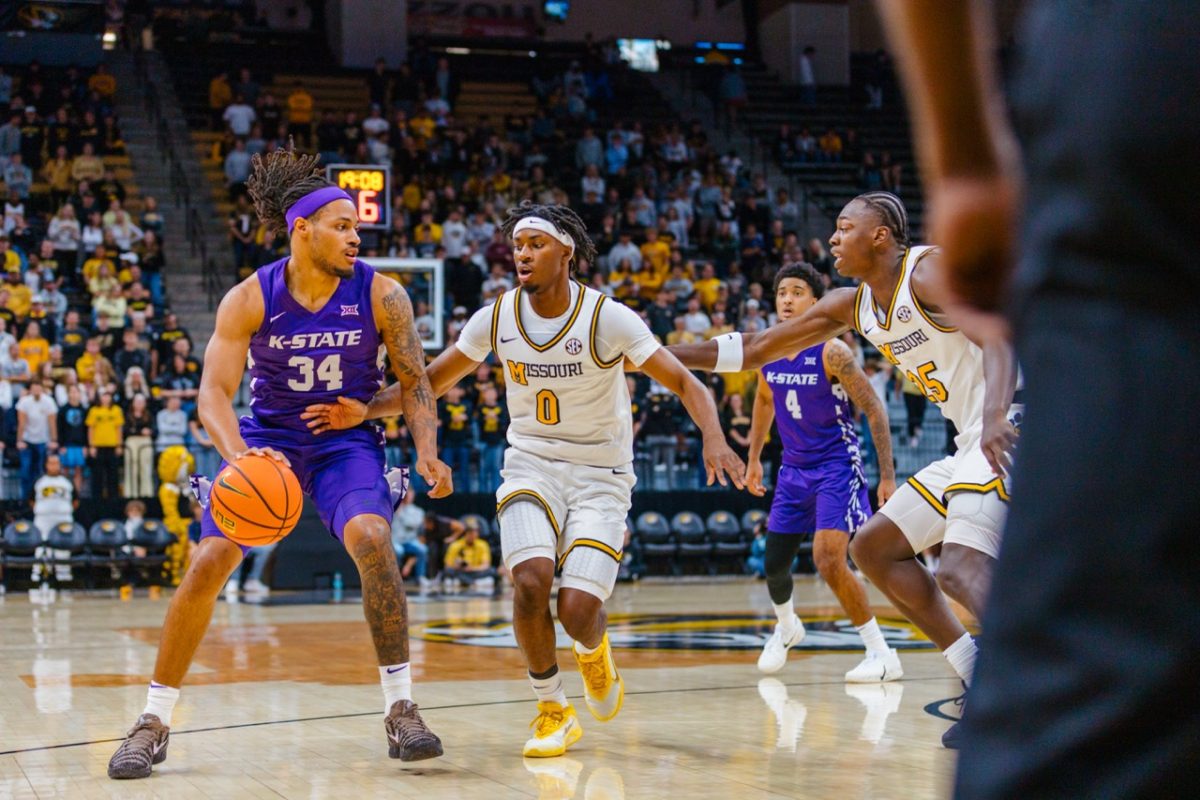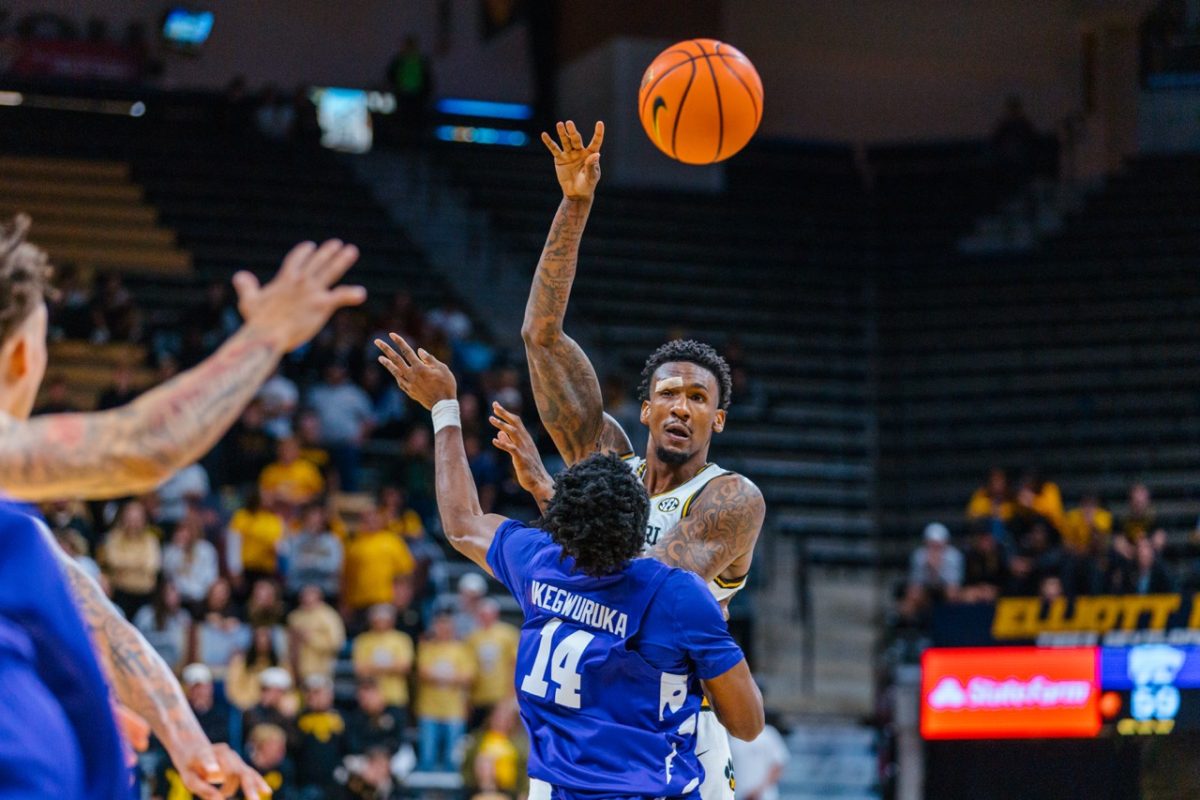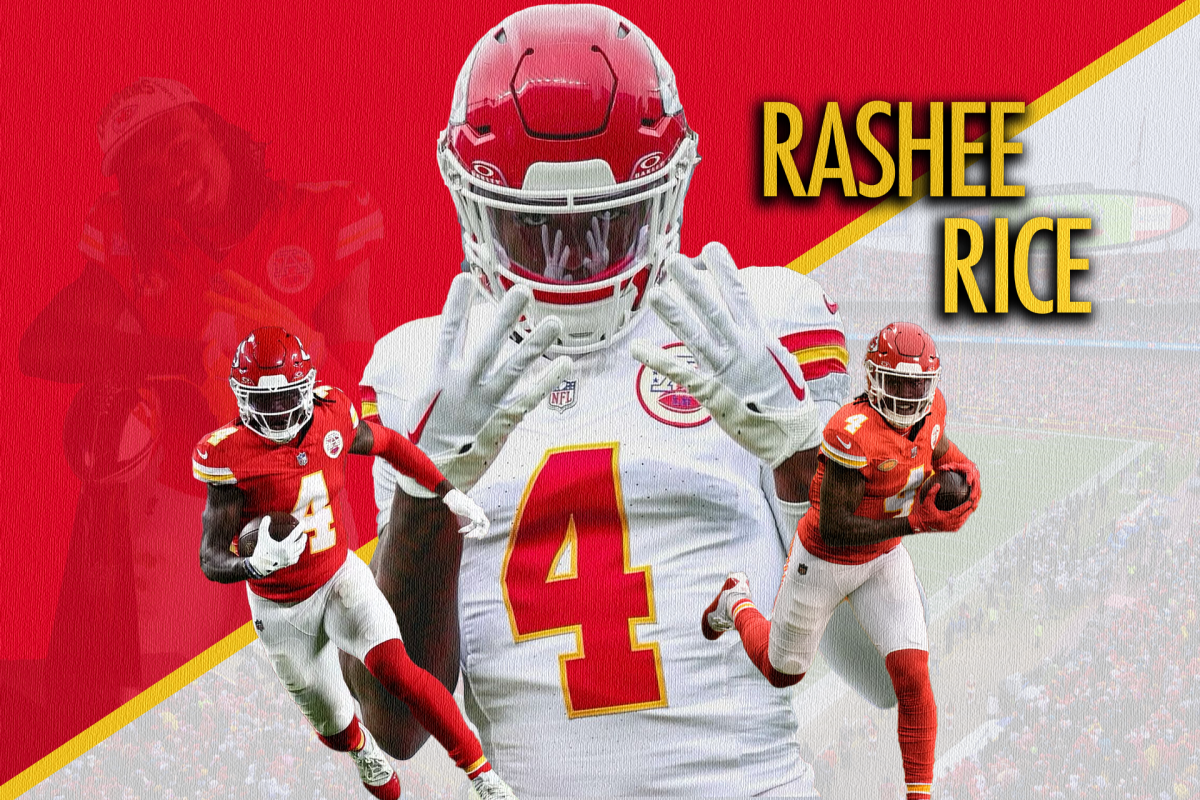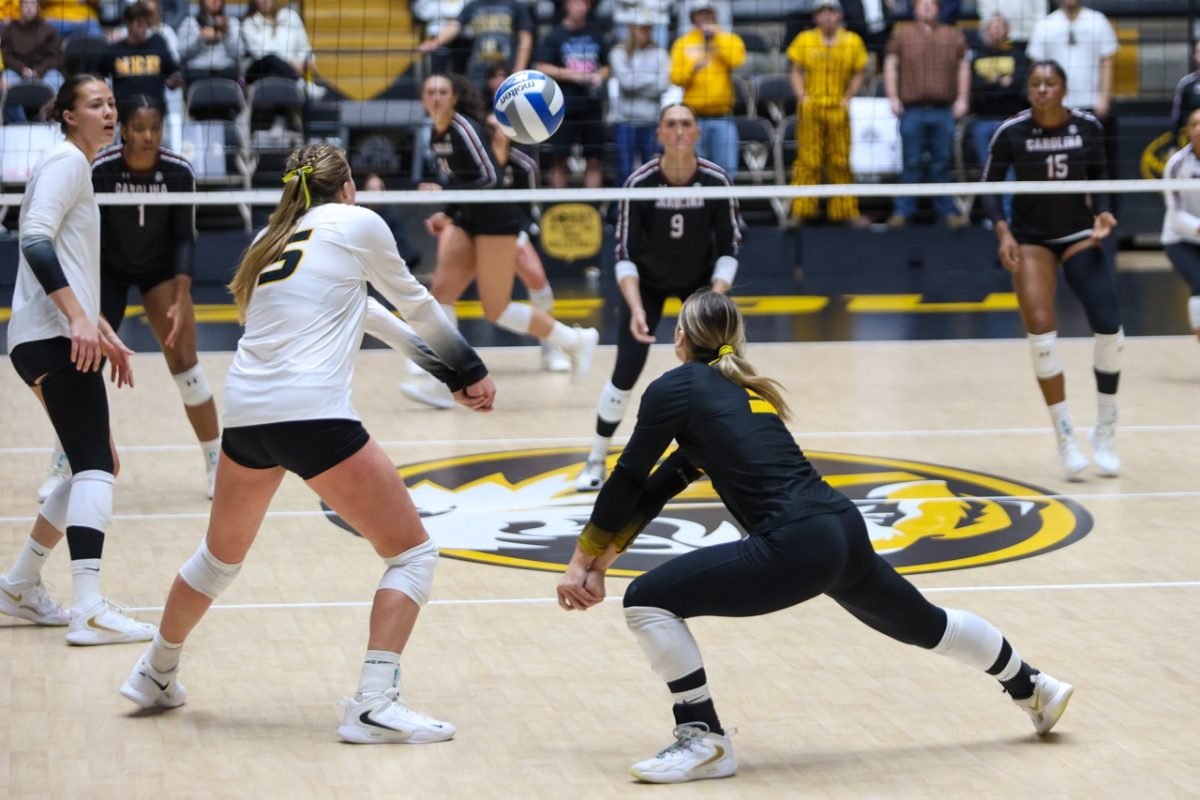Despite picking up the win, the game plan that Missouri coach Eli Drinkwitz featured on Oct. 10 against LSU isn’t the most effective way to beat Kentucky.
Even though that game plan resulted in nearly 600 total yards and a monumental win for the program, it wouldn’t necessarily do the same against a team with a much stronger secondary that picked off nine passes in its previous four games. And Drinkwitz knew it.
“We were definitely planning on running the ball and trying to pound the clock,” Drinkwitz said. “We felt like the way they played the last two games with playing coverage and trying to rally to the ball late, they were forcing people to throw interceptions. And so for us, we felt like we needed to lean on Larry [Rountree III] and our offensive line, and it worked out.”
The Tigers ran the ball a whopping 62 times, 37 with Rountree. And about controlling the clock? Missouri held the ball for 43 minutes and 10 seconds, nearly three-quarters of the game.
“Our ability to control the clock in the third and fourth quarter, I think, was the biggest difference,” Drinkwitz said. “So, a tremendous win.”
That approach helped Missouri beat Kentucky for the first time since 2014, but much more significantly, it signaled that Drinkwitz is the type of coach who will adapt his style of play to the opponent.
That may seem like the obvious thing to do, but many coaches — even some very successful ones — would be content to try to win their way, and that will often backfire. When players exited the field after Missouri’s 20-10 win over Kentucky, that was the most encouraging sign for the future of the program.
###The run defense’s improvement wasn’t a fluke###
That being said, Drinkwitz’s game plan would not have worked if the defense didn’t reward his confidence in them and shut down Kentucky’s strong running attack, again without starting defensive tackle Kobie Whiteside.
Kentucky gained only 98 yards on 23 attempts on the ground, which looks even better for the Tigers when it’s taken into account that 29 of those yards came on one play. On the Wildcats’ 22 other attempts, they averaged 3.1 yards per carry.
“You got no shot to win the game if you don’t stop the run against Kentucky,” Drinkwitz said. “That’s what they do, that’s what their identity is, that’s what their DNA is, and that’s what their defensive schemes and special teams are built to do.”
Missouri has proven that it’s moved past its poor showing against Tennessee’s run game, with two outstanding performances against LSU and Kentucky.
“Hats off to Coach [Ryan] Walters, Coach [DJ] Smith, Coach [Brick] Haley, Coach [David] Gibbs, Coach [Charlie] Harbison,” Drinkwitz said, shouting out the entire defensive staff. “Just an incredible job there.”
###Nick Bolton remains Nick Bolton###
Nick Bolton actually reached a season low in tackles against Kentucky, but don’t let that fool you. The Wildcats only took 37 offensive snaps, and Bolton impacted the game on most of them.
Missouri’s weak-side linebacker tallied seven total tackles, two fewer than the next three Tigers combined. Bolton tallied a sack of Wildcat quarterback Terry Wilson, as well as a thunderous hit on a third-down scramble in the third quarter.
That hit forced Kentucky’s offense off the field quickly, shortly after Missouri’s 21-play drive stalled, and the Tigers’ offense made it a two-score game six plays later.
“We talked about it on the sidelines — regardless if they scored or not, our mindset was getting three and out,” Bolton said. “We got a roll-out, forced him to use his feet, and we got off the field on third down.”
On the sack, Bolton bull-rushed right tackle Darian Kinnard, a first-team All-SEC offensive lineman. Gatewood was forced to step up and to the right after edge rusher Trajan Jeffcoat came through the A-gap untouched on a looping stunt, and Bolton finished the play.
“We had a twister, with Trajan coming around the edge,” Bolton said. “I tried to pick the tackle, but I couldn’t get all the way through so I decided to go outside. With pressure coming from the inside from Trajan Jeffcoat, it forced him to roll to the right. Just got lucky that play, I guess.”
###OL coach Marcus Johnson might be the team’s MVP###
Rountree will get most of the credit for shouldering the offense with 37 carries as they executed Drinkwitz’s game plan, and he certainly deserves it. That being said, it’s important to recognize what the offensive line has done so far this year, given the circumstances.
Missouri lost three 2019 starters to the NFL, and it lost a fourth when projected starting left tackle Hyrin White underwent surgery, ending his season. Injuries throughout fall camp and competition on the left side seemingly prevented the eventual starting five — Zeke Powell, Xavier Delgado, Michael Maietti, Case Cook and Larry Borom — from developing adequate chemistry through repetition.
That group, coached by Marcus Johnson, has far exceeded expectations through four games. They’ve allowed six sacks and allowed Rountree to produce 4.6 yards per carry, a number that was much higher heading into Saturday’s run-heavy — and therefore more predictable and more difficult to run — game.
“Hats off to Marcus Johnson,” Drinkwitz said. “I think he’s instilled his identity with those guys.”
Missouri’s depth was tested on Saturday, as Delgado was out most of the game with an injury that he suffered in the first quarter, and Borom and Powell got hurt late as well. Bobby Lawrence, Javon Foster and in particular true freshman guard Dylan Spencer — who replaced Delgado — allowed the Tigers to salt the game away.
“Dylan came in and played his butt off,” Rountree said. “I always told him to always be ready, so to see him come in and see him play like I knew he was gonna play, it makes me proud.”
###Aggressive Drinkwitz shouldn’t change###
Drinkwitz has established himself as an aggressive in-game decision maker. Missouri is 8/12 on fourth downs this season, including 4/5 against Kentucky, and they’ve chosen to go for it twice as much as their opponents so far.
On Saturday, however, Drinkwitz said that he regretted the only one that the Tigers didn’t convert.
“Honestly, that’s a coaching screw-up,” Drinkwitz said about going for it on fourth and one on the Kentucky seven in the third quarter. “I gotta get it to a two-possession game. That was a bad decision by me. … I felt like we had converted a couple fourth downs on that drive already, and we didn’t execute the play call that we had called, but ultimately, I should’ve kicked the field goal.”
He’s probably right about that. With the way Missouri’s defense had been playing, it would have been wise to take the points and make it a two-possession game.
However, Drinkwitz would be making a far more damaging mistake if he over-corrected and toned down the aggression next week against Florida and the rest of the season.
Against the most offenses in the SEC, settling for three points isn’t going to cut it. Florida averages 42.1 points per game, so Missouri has to be thinking “touchdown” each and every time it reaches the red zone. It’s unclear how much Drinkwitz factors advanced analytics into his decisions, but by and large, the numbers indicate that going for it will generally increase win probability more than punting or kicking field goals.
It’s also worth noting that the 21-play drive that ended in a failed fourth-down play doesn’t happen if the Tigers don’t convert twice on fourth downs earlier in the drive. While those decisions didn’t directly translate into points, they did exhaust Kentucky’s defense.
“From a defensive perspective, after being on the field for eight minutes, for the offense to go three-and-out and get right back on there is mentally deflating,” Bolton said. “The offense did a great job controlling the clock, giving us a chance to catch our breath and making them one-dimensional as well.”
_Edited by Maia Bond | [email protected]_


